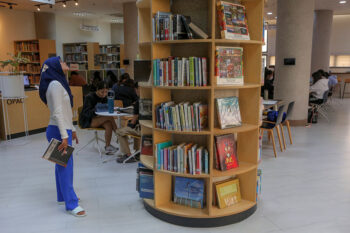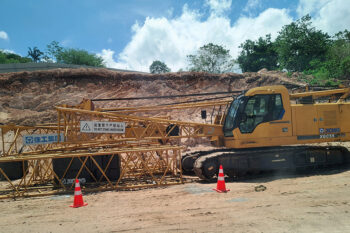CAGAYAN DE ORO CITY (MindaNews / 2 Apr) – Middle and upper class citizens ought to show more interest and participation in local governing activities, even if only to show agreement or disapproval of what’s going on.
Their failure to participate in the governing process deprives the community of an essential condition for good governance: citizen involvement, cooperation, and the enthusiasm generated by both.
If they represent, say, 50 percent of the populace, it means the community’s government enjoys only half of its citizenry’s mandate, subtracting the same proportion from its confidence or will to move decisively.
As a consequence, the onus of assuring good governance for the community falls upon the shoulders of the less privileged, less educated, and less technologically-endowed sectors.
*****
This effectively polarizes the community between the poor and needy (who do participate and show up in community meetings), and the comfortable and affluent (who are perennially absent or negligent).
This dichotomy between the needy and the endowed has been reflected by the turnout in the synchronized barangay elections. One searches in vain for the lawyers, doctors, engineers, bankers, even priests and educators; they don’t show up!
Professionals are conspicuously absent except for a few who happen to be officials of the barangay. It is the less privileged who are present in abundance. A sad spectacle.
Only the needy are there. Those who can help alleviate their needs—with ideas, programs, technology, or resources—are absent. So the Barangay Assembly’s potential as a problem-solving forum and legislative governing body (parliament) for the community is severely limited.
*****
As for the larger implications, although local autonomy is a national policy, the government of the community cannot operate autonomously because it is in no position to consolidate its social and economic capital. With only a portion of the community present, its problems cannot be addressed effectively, its opportunities untapped by the entrepreneurial class.
Lets face it: Only a community that is able to mobilize and collaborate can exemplify autonomy as a workable setup. Without the cooperation and assistance of affluent citizens, the rest of the community is left helpless, unable to progress. Lacking multi-sectoral collaboration, development becomes an elusive goal.
All sectors must be in on the act in the barangay, not just its needy. Otherwise it cannot be said that our Republic is anchored upon the sovereignty and authority of all of our people, not just some.
The good thing about multi-sectoral collaboration is, it becomes possible to initiate community-based reforms by consensus. When people congregate to tackle a development-oriented agenda, politicking, rivalry, or power play would make no sense.
*****
This communitarian approach induces people’s concerns to revolve around the issue of how to mobilize or develop the communal resources to bring about progress for everyone.
Then would come into play the question of how to engage the talents and energies found in the neighborhoods, including the need to engage idle manpower or the unemployed so they won’t be forced into criminality for lack of productive things to do.
Mobilizing for progress would make people realize that development—not political power per se—is the proper object of governance. People find it easier to realize that considerations such as pedigree or popularity are peripheral.
The community can then focus on the task of seeking the competent and the dedicated to manage its programs if it is to progress and attain prosperity. This pragmatic sense ought to reign in our barangays in order to neutralize vanity politics and celebrity-driven ambition.
*****
Advocacy groups ought to expose pretentious public service as unseemly, fostering a no-nonsense standard for public officials.
Then perhaps well demonstrated ability command a higher premium in politics than theatrics, gimmickry, or demagoguery.
In the course of time, this sense of discrimination in selecting officials for their ability, commitment, or conviction will spill over to other barangays and spiral up to higher levels.
And that’s when national politics, being dependent on the barangays, may then attain a higher sophistication.
[Manny is former UNESCO regional director for Asia-Pacific; secretary-general, Southeast Asia Publishers Association; director, Development Academy of Philippines; member, Philippine Mission to the UN; vice chair, Local Government Academy; member, Cory Government’s Peace Panel; awardee, PPI-UNICEF outstanding columnist. Author of books on governance, he is national chairman/convenor of Gising Barangay Movement Inc. valdehuesa@gmail.com ]







